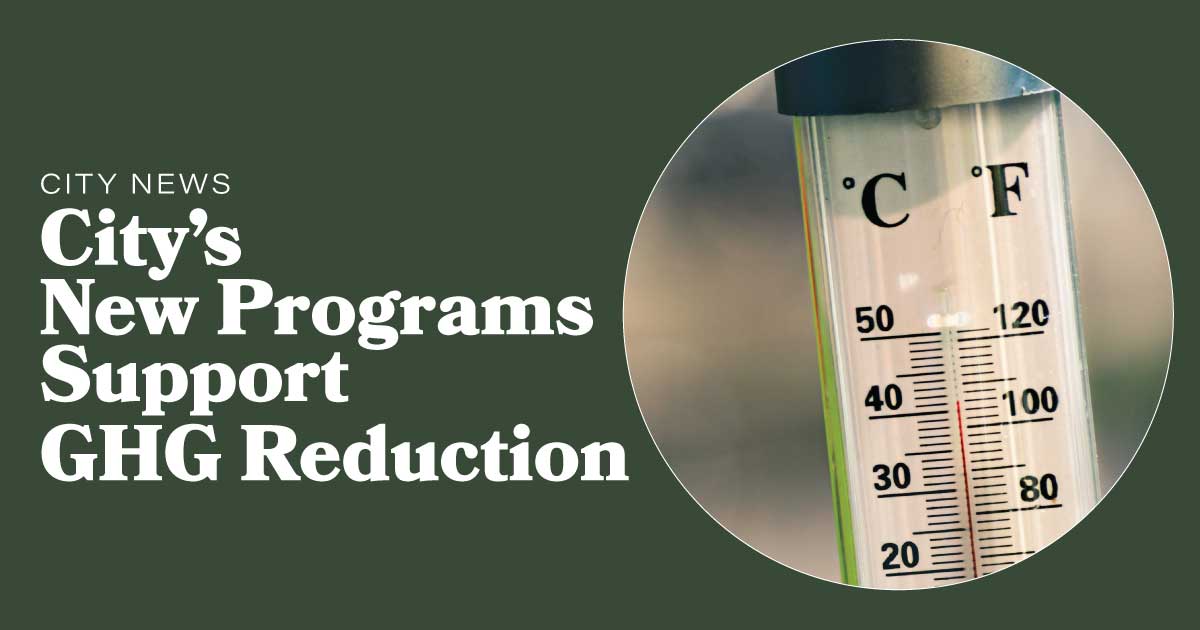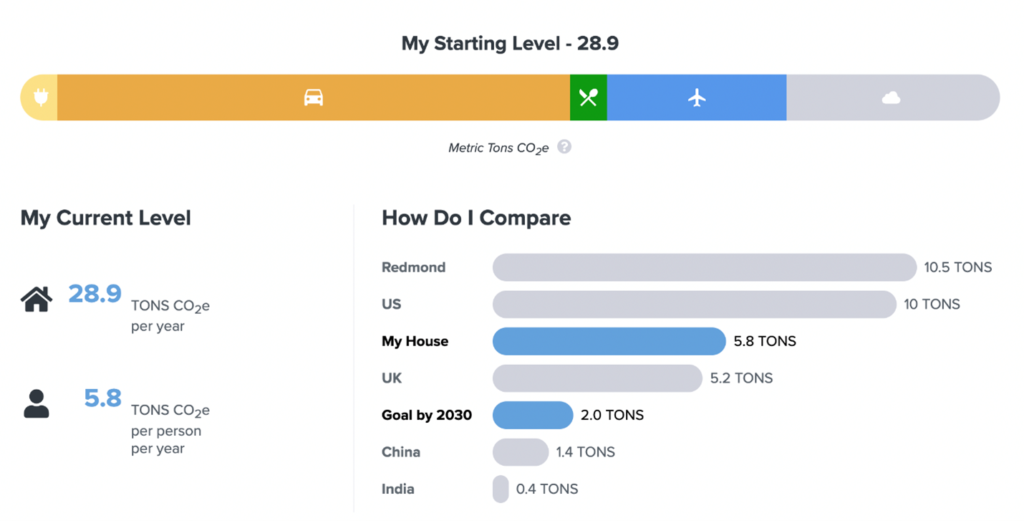
Energy Smart Eastside Heat Pump Program and Climate Action Challenge Aim to Make Reaching Climate Goals Efficient and Fun
Forty-two percent of greenhouse gas (GHG) emissions in the United States come from how we power our everyday lives – how we cook, drive, heat our water, and heat and cool our homes.
When you think your decisions and actions do not make the impact necessary to meet the required change to keep global warming below 2 degrees Celsius, understand the enormous opportunity that coordinating efforts offer and what the collective impact means for the future of our city and people. When you think figuring out the way forward is an insurmountable feat amid our already busy lives, understand that some impactful decisions are not daily ones, but rather ones that you make once every decade. Understand that banding together with your neighbors reduces the time, risk and money required to decarbonize your life and enable a safer, healthier and more equitable future for us all.
Lucky for us, our city is leading the way by providing a plan and the tools needed to decarbonize in an effort to protect our families and our beautiful city.
In 2021, the City of Issaquah adopted the Issaquah Climate Action Plan (ICAP). The plan is a comprehensive, proactive and strategic approach to reduce our city’s emissions, targeting those derived from our buildings’ energy use, transportation and land use, as well as materials and their consumption. The ICAP also focuses on preserving our natural systems and water resources while building community resilience and well-being.
According to the ICAP, 61% of Issaquah’s GHG emissions are from energy use. Recognizing that achieving the city’s decarbonization goals comes from individual participation in addition to municipal, state and federal coordination, the city is excited to announce two programs that make it easy and fun to save money and make your life cleaner and more resilient through electrification: the Energy Smart Eastside Heat Pump Program and the Climate Action Challenge.
Heat pumps are part of our energy solution. Despite long-term savings, heat pump adoption is often challenged by high upfront costs, customer inertia, and the complexity of the technology, options and incentives.
Because all the homes in Issaquah Highlands were built with gas furnaces, there are additional challenges. Switching to a heat pump from a gas furnace is not supported by a Puget Sound Energy (PSE) rebate, and the operating cost of a standard gas furnace versus a heat pump doesn’t justify the cost to make the change when solely replacing a furnace in Issaquah Highlands.
But if the fact that heat pumps offer 200-300% efficient, clean energy – compared to the 95% efficiency of their CO2 emitting natural gas furnace counterparts – doesn’t incentivize you to make the switch, then the argument for installing a heat pump versus air conditioning should hit home both financially and environmentally.
As we see more days over 90 degrees, most people have either installed air-conditioning (AC) systems or are strongly considering it. Installing a heat pump heater instead of AC will not only lower your monthly bill due to efficiency gains, but it will also give you a new heating system on the cheap, sparing you the cost of having to replace that later. These miraculous machines both heat and cool.
To provide education and guidance in addition to reducing complexity and customer inertia, Spark Northwest is teaming up with the cities of Bellevue, Mercer Island, Issaquah, Redmond and Kirkland to form the Energy Smart Eastside Heat Pump Program. Like the 2017 solar program, this program helps streamline the process by cutting out half the steps typically involved in installing a heat pump. The heat pump program also offers an equity-focused component that adds additional support for low-income customers. Check out energysmarteastside.org for more information and upcoming workshops.
From BrightAction comes the Eastside Climate Action Challenge between Redmond, Bellevue, Issaquah and Mercer Island. Painlessly and quickly, you can create an energy profile, select actions to reduce your carbon footprint and start receiving customized recommendations as you track your household’s progress in its decarbonization journey. You can also join and track the achievements of your city, a community group or a local team in addition to collaborating and sharing resources with your neighbors to compete with others.
In about 30 minutes, I was able to answer a short set of questions and input my data from my PSE bills. I created an Issaquah Highlands community group and a Dahlia Park + Roanoke Woods team, selected a bunch of actions my household is actively talking about, crossed off the ones we’ve already taken, and received a profile and plan with numerous resources laid out before me. As suspected, my household’s biggest emitter (55% of our total household emissions) is our cars (one of which is a hybrid), producing 16.1 tons of CO2 emissions per year. I can’t wait to see that reduced as we work our way through the steps on this platform toward purchasing electric vehicles (EVs) this year. You, too, can get excited about and access this resource at eastsideclimatechallenge.org.
As I said, we are lucky to live in a city that is providing us with the plan and tools needed to make action accessible. I look forward to participating in the Issaquah Highlands community efforts and sharing this electrification journey together. You can set up a group for your Issaquah Highlands neighborhood and challenge your neighbors to participate!
Christin Pelgrum is a Dahlia Park resident.






